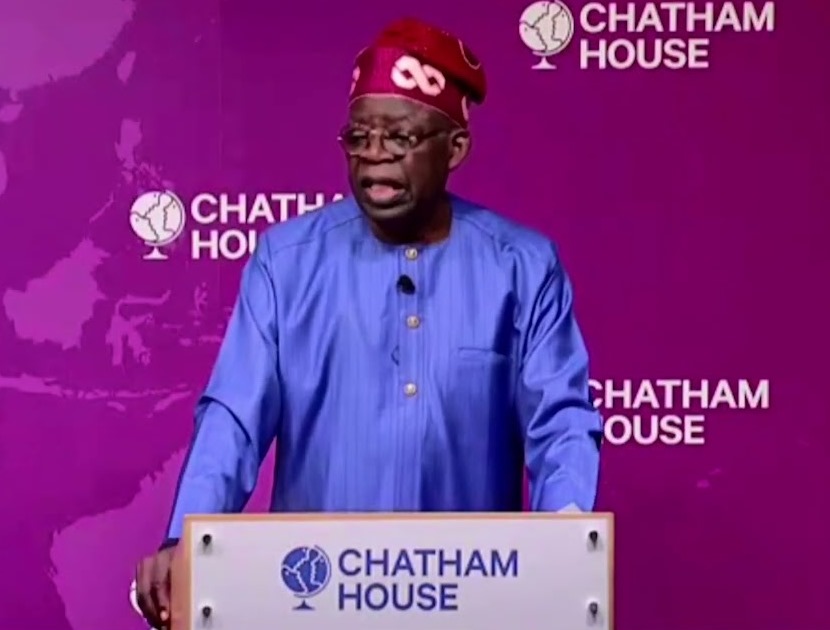It was 3. 19 am (4. 19 am in Nigeria) on March 1st when the alert from The Washington Post hit one’s email on the official declaration of Asiwaju Bola Ahmed Tinubu of the All Progressives Congress, (APC) as the winner of the February 25th, 2023 presidential poll. Asiwaju has since collected his certificate of return. The two developments came as a relief. Under no circumstance should disagreements about elections or just about any other matters lead to violence and the sight of women carrying their bare belongings trying to escape conflict zone. That is what makes the big news on global television channels and it is always so humiliating for the African. Rwandan genocide is an embarrassment for the whole of humanity but more so for Africans that, for three months non-stop, human beings were pursuing fellow human beings as preys.
Nigeria is the country which can send troops to quell such disruptions in other African countries. There are no African countries with troops and resources to contribute troops to bring void under control in a humongous Nigeria. It must be the reason why signifiers in Nigerian affairs such as the UK, Goodluck Jonathan, IBB, the Sultan and many African leaders are congratulating Asiwaju. They cannot be doing so because they are unaware of grumblings against the conduct of the February 25th, 2023 election although the degree of deliberate deployment of contextually false stuff by those grumbling could also have made some signifiers conclude that it is more of hysteria than substance.
Whichever one it is, the quick moves by Independent Electoral Commission, (INEC) in declaring the election result and pressing into Asiwaju’s hands the Certificate of Return do not lessen the challenge of remaking leadership in Nigeria by taking it beyond streetwise calculations. As someone quipped at the start of the campaigns, there was no Kemal Ataturk among the four leading candidates in this contest. The problem though is that there is no natural Ataturk. Ataturks are not born, they are made. It is the challenges of the moment and the responses to such challenges that makes or unmake an Ataturk. It remains to be seen how high the Asiwaju gaze is.
Luckily, Asiwaju is a constructivist, not a realist. He won because he had an image of himself being the president of Nigeria. And he used his time in power as governor of Lagos State to start putting in place the structures that could give reality to that imagining, not the other way round. That is the sense in which Intervention can understand several of his moves such as the diversity of the territorial identity of members of his cabinet and his 2013 move on alignment of forces. As is always the problem with constructivist moves, he ran several risks. The outcome could have been other than his victory. He could have lost everything in the bargain and Heavens would not have fallen.
In that sense, there is a theoretical lesson in Asiwaju’s victory, both for those who accept it and those who do not and never will. Hitherto, the kind of structuralist thinking dominant in Nigerian academia would argue that nobody’s agency alone could counterbalance the structural outlay of the society – the economy, the institutions, the state, etc – and successfully bend society to his own will. Asiwaju’s strategy has contradicted that, meaning that there is something in Asiwaju’s victory worthy of academic reflection. In other words, it is beyond the thesis that ruling party candidates are difficult to defeat or claims that he rigged. Let’s say he rigged, it will be begging the question to stop there because the next question would still be why did he do so? Rigging could not but have been in pursuit of something else. The assumption is that opportunists will not turn this theoretical re-examination of structuralist reasoning into a sycophantic jamboree.
Now, imagining and enacting a presidential self is not the same thing as a presidential imaginaire. Imaginaire does not mean fantasy but anyone’s overarching outlook or frame of intelligibility by which he or she operates. At the moment, no one appears to know what constitutes Tinubu’s imaginaire. It is true his narrativisation of it is that ‘it is his turn’ but his turn to do what? To pocket Nigeria or to revolutionalise leadership and power?
It can be any of the two but none of which will depend on Tinubu alone. Rather, Nigerians and the larger global space will decide which direction it goes. The real tragedy then is not Tinubu’s victory in the election but the quality of the discursive space in Nigeria. The idea that what political scientists call the state is the original evil genius and that re-mastering it is a minimum requirement for progress does not sit well with majority of Nigerians. The apriori reasoning majority are comfortable with is the unbelievable jumping for joy in messiahs. So, the ascendancy of the non-messiah is equated with the death of promise of progress instead of the possibility of politicizing the contradiction as has consistently been the story from Latin America. This tragedy is made worse by a battery of pastors lost in what Archbishop Ignatius Kaigama once called “market place prophecies and visions, charismatic display of talents and material salvation”. His statement applies to trouble-seeking imams and sundry pundits selling myopia and mediocrity that leaves their captive audience with no safe landing. Nigeria is paying heavily for the collapse of the universities. Otherwise, who are those who believe these creatures in any society with a critical mass?
In the next installment of this piece, Intervention will pursue a modified class reading of the Tinubu imaginaire.




























